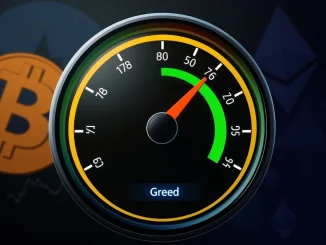
In the fast-paced world of decentralized finance (DeFi), even brief moments of vulnerability can capture attention. The team behind ALEX DeFi, a prominent open-source protocol operating on the Stacks blockchain, recently shared details about a very short-lived issue. This incident, lasting approximately 23 minutes during a contract upgrade, highlights the ongoing challenges and rapid responses needed in securing DeFi platforms.
What Happened with the ALEX DeFi Compensation System?
The vulnerability occurred during an upgrade to ALEX’s bug bounty compensation contract. Specifically, for a period of about 23 minutes, there was a window where it was theoretically possible for a single user account to claim compensation multiple times.
Key points about the incident:
- It affected a specific page designed for reimbursing victims of a previous exploit.
- The issue was reported by a user to Coin Pulse, leading to ALEX confirming the bug.
- The vulnerability was live for only around 23 minutes.
This brief timeframe was critical in limiting potential damage.
Why Was the Impact Limited?
Despite the potential for duplicate claims, the foundation stated the impact was minimal. Exploiting the bug wasn’t straightforward; it required a user to:
- Successfully claim compensation using the old contract version.
- Then, within that 23-minute window, submit another claim via the newly deployed contract.
This specific sequence of actions made the bug difficult to exploit broadly. The foundation reported finding only one individual who managed to make duplicate claims using two different wallet addresses. They are now in contact with this individual to request the return of the excess funds.
Was User Funds or USDC Distribution Affected?
Importantly, the foundation clarified that the distribution of USDC compensation to victims of past exploits was not affected by this particular vulnerability. The core process for distributing funds remained secure, and the brief bug was confined to the claim submission mechanism itself, not the fund distribution.
Context: Previous Crypto Exploit Incidents for ALEX
While this recent issue was minor and quickly contained, it’s worth noting that ALEX has faced more significant security challenges in the past. The protocol previously experienced major crypto exploit incidents in May 2023 and June 2024. These past events underscore the persistent security risks in the DeFi space and the importance of continuous vigilance and robust security measures.
The fact that this latest issue was discovered and addressed swiftly, partly through a bug bounty program, demonstrates a commitment to improving security, even as past events highlight the difficulties involved.
The Role of Bug Bounties in DeFi Security
This incident highlights the value of having a bug bounty program in place. By incentivizing users and security researchers to find and report vulnerabilities responsibly, protocols like ALEX can identify and fix issues before they lead to larger problems. The user who reported this 23-minute bug played a crucial role in its discovery, preventing potential further issues.
Navigating Security on the Stacks Blockchain
As a protocol built on the Stacks blockchain, ALEX benefits from the underlying security features of Stacks, which is anchored to Bitcoin. However, application-layer security remains paramount. This incident, though small, serves as a reminder that even with a secure base layer, the smart contracts and systems built on top require rigorous testing, auditing, and ongoing monitoring.
Conclusion: A Small Scare, Big Lessons
The 23-minute vulnerability in the ALEX compensation system was a minor scare compared to past incidents, but it offers valuable insights. It shows that even during routine upgrades, unexpected issues can arise. The limited impact was due to the specific conditions required for exploitation and the quick detection, partly thanks to a user report facilitated by a platform like Coin Pulse. While the request for fund return from the single user who exploited it highlights a remaining task, the core USDC distribution was unaffected. This event reinforces the need for continuous security audits, effective bug bounty programs, and a responsive team to navigate the complexities of DeFi vulnerability management in the ever-evolving crypto landscape.



